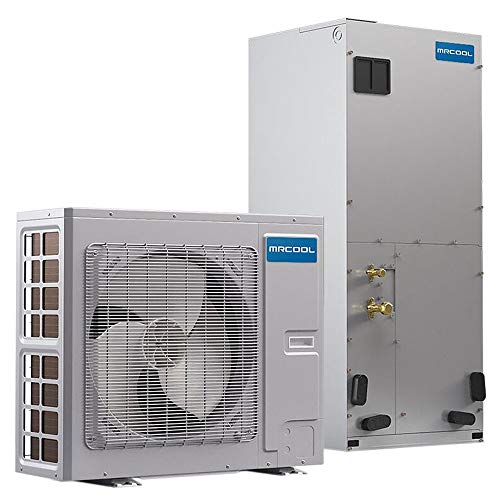Whether to choose heat pumps or air conditioners is a topic to debate for those living in a moderate or varied climate. The cost is a variable to consider, which may make you ponder what to do next. Worry not! We've done the research to help you find the cheapest option.
Heat pump systems are only about 5% more expensive than central air conditioners, but the cost of installation is pricier. Also, heat pumps run year-round compared to a conventional air conditioner. Wear and tear can also cause service contract prices to go up and void the warranty.
Read on for more information about the types of air conditioners and heat pumps available and the advantages of using each. You could also compare the prices of various HVAC systems to determine which suits your cooling or heating needs best!
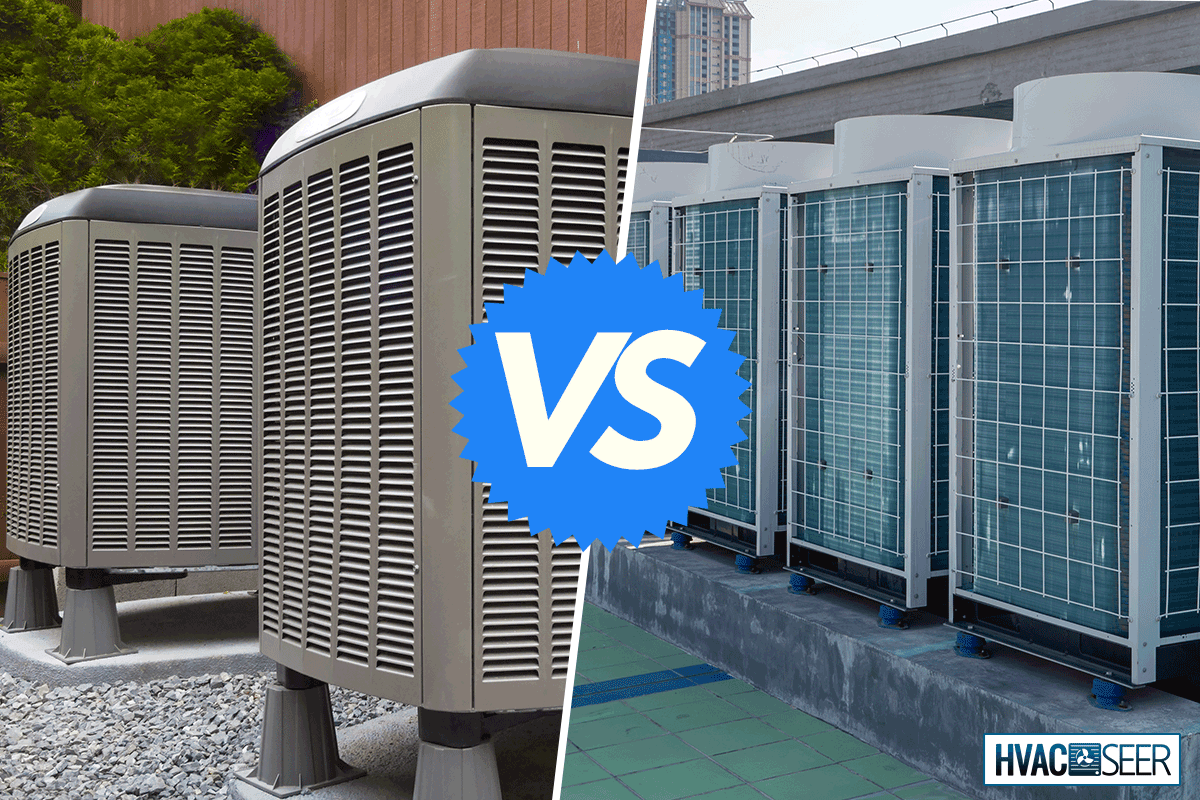
Heat Pump vs. Air Conditioner - What To Consider?
A heat pump typically heats an indoor space by transferring thermal energy from the surrounding environment into the house through the refrigeration cycle.
Many heat pumps can also work oppositely, pulling heat from an interior space and releasing it into the outside air to cool.
An air conditioner, much like a heat pump, transfers heat from one place to another. However, an air conditioner takes heat from the air and sends it outside.
How To Decide Between The Two?
When deciding between a heat pump and an air conditioner, it's important to determine exactly what you want to accomplish with either system.
If cutting down on the amount you spend on heating your home is your priority, hold off on making a hasty purchase of a heat pump right away.
Rather than focusing on increasing the efficiency of your heating system, consider increasing the amount of insulation you have.
Here are more factors to consider when deciding between a central AC system and a heat pump:
The Cost
When choosing between a heat pump and an air conditioner, one of the most crucial considerations to make is, of course, your budget.
Many households spend a great deal of money on expensive HVAC systems. Let's compare the cost of an air conditioner to that of a heat pump, so you know what to expect.
Heat pumps are typically more expensive than air conditioners. When comparing the cost of a heat pump versus an air conditioner, remember that under the right conditions, a heat pump can function as an "all-in-one" system.
So, in the right climate, a heat pump can save homeowners the money they would have spent on installing an air conditioner and a furnace.
Electricity powers these devices, which is typically more expensive than gas. In temperatures below 40 degrees, heat pumps increase their electricity consumption. A heat pump will be more costly in the wrong climate.
Also, heat pumps have a shorter lifespan than furnaces and require regular maintenance to function properly. Because of this, the total cost of using one will be higher.
Installation
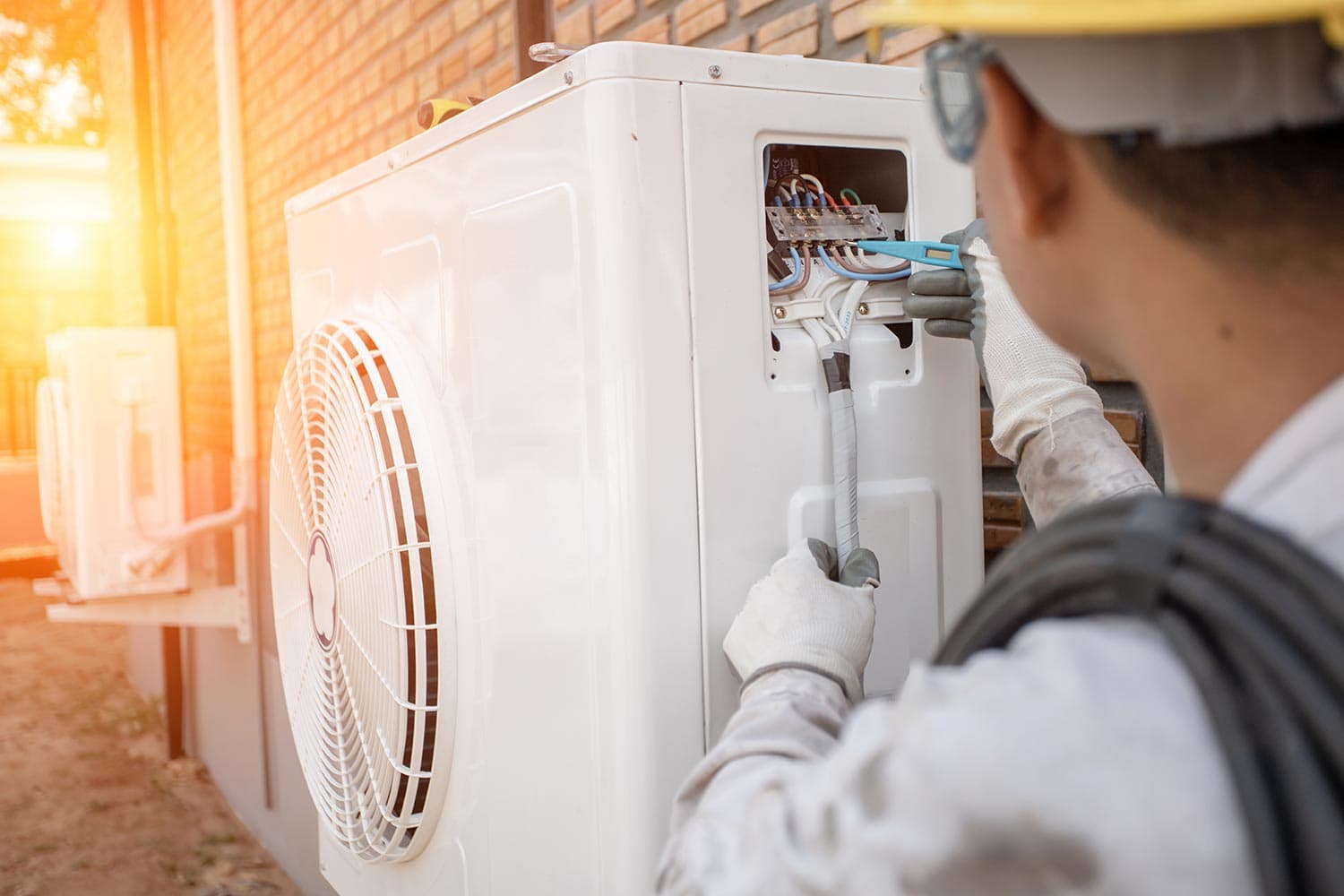
An air conditioner unit cost may range between $3,810 to $7,480. The cost depends on the size, type, and energy efficiency rating.
Also, don't forget to include the installation cost. The price might be anywhere from $2,550 to $3,600, depending on the size of the unit, where you want it installed, and how much ductwork you need. A model that uses less energy can save money in the long run.
The cost of a heat pump, along with installation, varies because of the type and size, its energy efficiency ratings, the unit's placement, and how much ducting is required.
House heat pumps can cost as little as $3,875 or as much as $22,000 if installed by a geothermal contractor.
Maintenance
A heating system requires maintenance in the fall to get it ready for the winter. And an AC needs maintenance in the spring to get it ready for the summer.
Most air conditioners are operating over much of the United States during the warm summer months, but they are off during the colder winter months.
Meanwhile, you can use a heat pump continuously throughout the year. However, because of the significant increase in wear and tear, it will require more frequent maintenance.
You will probably have to replace filters more frequently. It's also possible that the additional expense of filters alone will render whatever savings you gain from your heat pump negligible.
A general service call for a heat pump costs $50 to $180, while the hourly labour is about $80 to $160. Annual preventative maintenance costs $159 to $615 per unit plus $25 for parts.
The cost of a simple AC tuneup ranges from $75 to $200. Long-term maintenance agreements range from $150 to $500. Keep in mind that HVAC technicians charge an hourly rate of $50 to $150 for repairs that aren't part of a normal service.
A consultation with a local HVAC professional is the most effective approach to get precise price information, and help choose an appropriate size heat pump for your house or place of business.
Replacement
It's possible for the price to replace a heat pump to fall anywhere between $4,167 and $7,417. This range includes the cost of the equipment, the labor, and any other applicable costs.
Meanwhile, air conditioner replacement costs range from $5,000 and $10,000 in a residential setting, depending on the model. The price covers the cost of labor and any applicable permit costs.
This spectrum encompasses a wide variety of system sizes and degrees of functionality, including AC systems with adjustable rotational speeds.
Types of Air Conditioners - What Are They?
There are window air conditioners, central air conditioners, split-type air conditioners, and also portable air conditioners. They are simply a few types of air conditioners on the market.
A central air conditioner unit comes with a condenser, an evaporator, and a compressor. It is usually on the roof. The unit has a connection to the supply and return ducts, which are installed on the walls of a home or office.
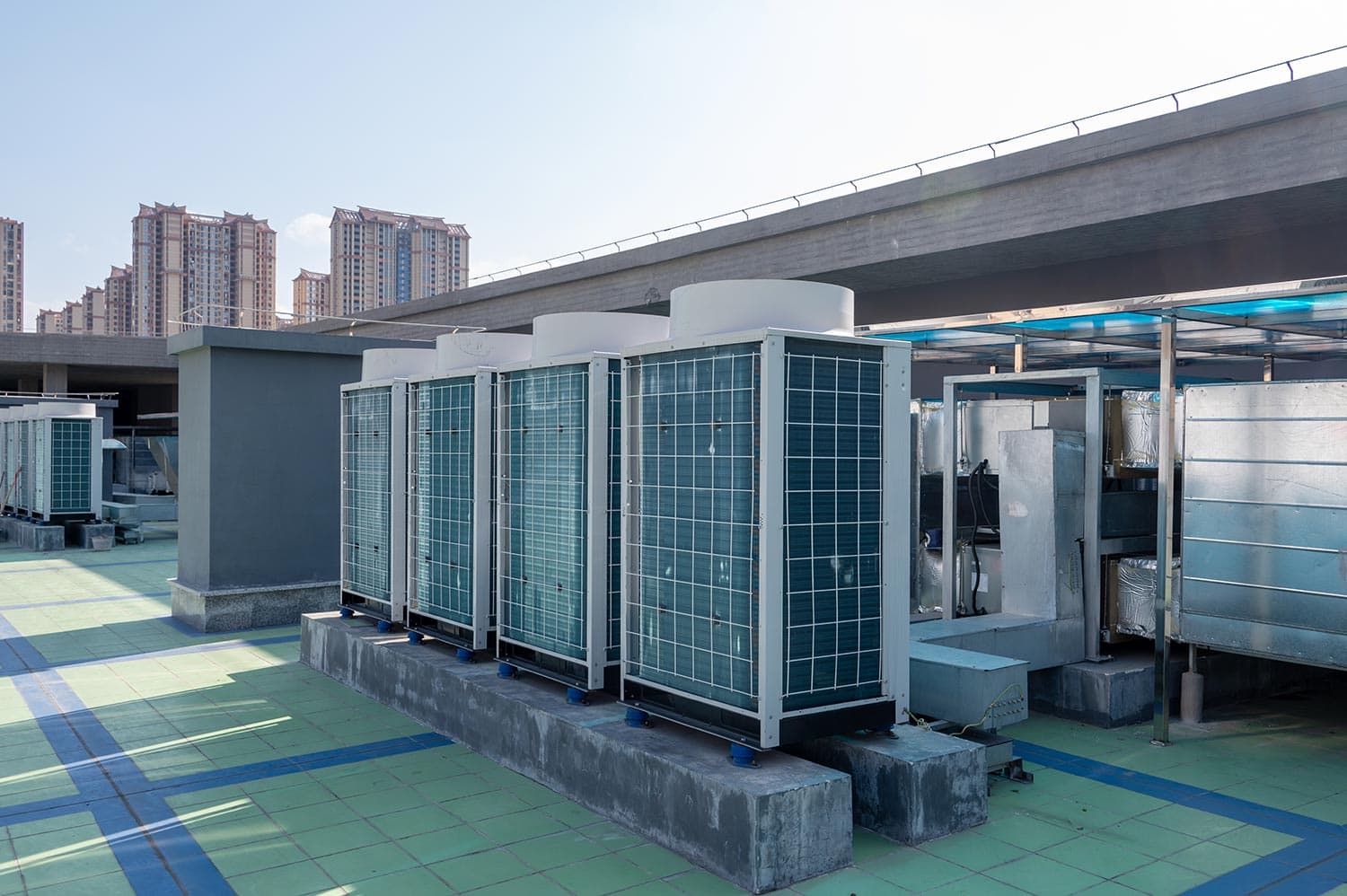
On the other hand, the split-type AC has its own outside and indoor units, and the ductwork serves as the means by which air is delivered.
There is also a mini-split AC that has a more compact footprint and does not need ducting in order to supply air. The thin indoor unit that is installed on the wall is where it distributes cold air.
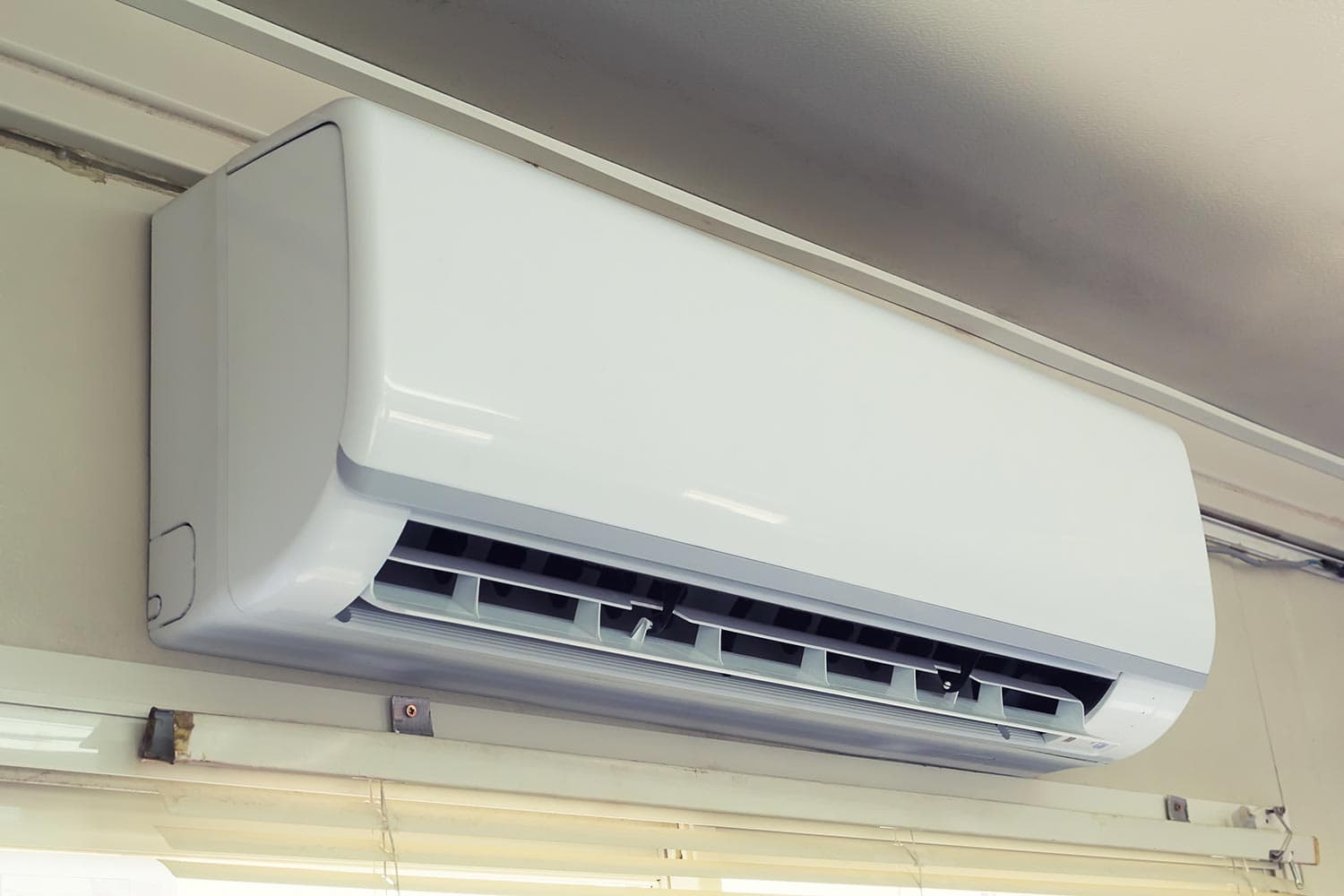
A wall AC unit is another option that integrates all the components into a single container you can mount on a wall or a window. This air conditioner works well at cooling off only one room at a time.
It is possible to compare a portable air conditioner to an air conditioner that is installed in a window. But you can transport it from one room to another with relative ease.
Check out this Portable Air Conditioner on Amazon.
What Are The Types of Heat Pumps?
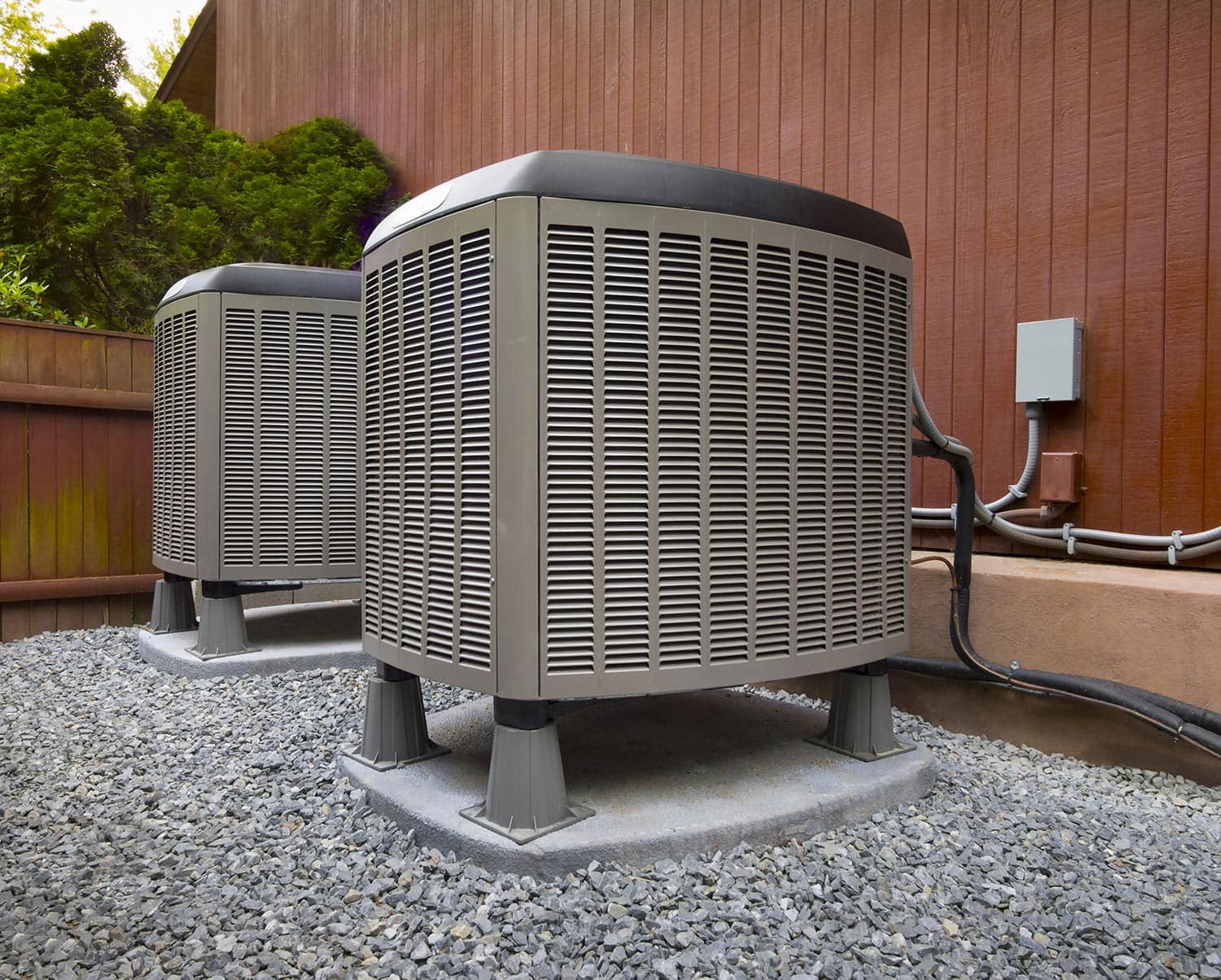
Air source heat pumps and geothermal heat pumps are the two primary device types in the heat pump industry.
We can refer to a heat pump that draws its heat from the surrounding air as an air-source heat pump. In comparison, a geothermal heat pump pulls in heat from the earth.
The split type and the packed type are the two primary categories for heat pumps, depending on the design.
A packaged unit stores all its system's components in a single cabinet. This differs sharply from a split-type heat pump, with its two distinct, separated outdoor and inside units.
Besides the heat pump, a packaged unit may also include electric heating coils or a gas furnace. These support the heat pump's ability to supply warm air inside the building when the outside temperature is low.
Check out this Central Heat Pump Split System on Amazon.
Longevity
Compared to an air conditioner, the lifespan of a heat pump that is used for both heating and cooling may be shorter. HVAC installers estimate the lifespan of a heat pump that is in use year-round to be 15 years. The typical heat pump in the United States takes around 8 years to pay for itself.
Energy and Environment Efficiency
Since heat pump HVAC systems use less energy than central air conditioners, you may get a tax credit or rebate from the federal government, your state, or your local utility company.
How friendly a heat pump and an air conditioner are to the environment is something that should be a consideration when making a comparison.
Natural gas for residential settings, contrary to widespread belief, isn't particularly harmful to the surrounding environment.
Until we have access to more environmentally friendly methods to produce energy on a larger scale, a furnace powered by natural gas is more environmentally friendly than an electric-powered heat pump.
FAQs
How Often Does A Heat Pump Start Per Hour?
It all depends on the cooling capability of the unit, the temperature of the room, and the relative humidity. Depending on the aforementioned variables, a 10- to 20-minute shutdown should be adequate.
A recommended maximum is 2 to 3 cycles per hour. Also, never leave your HVAC system running all the time.
What Temperature Should I Set My Heat Pump In The Winter?
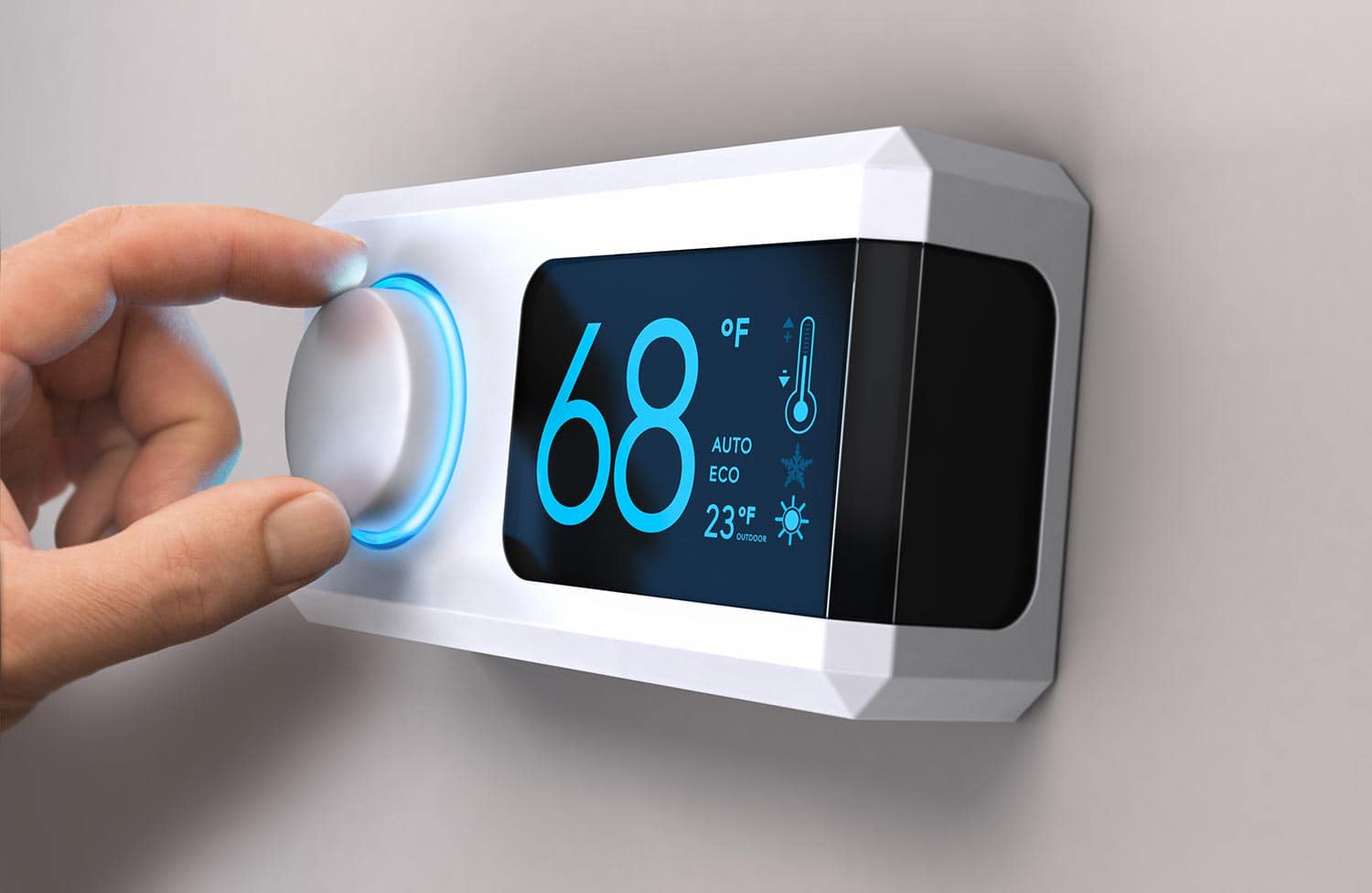
In the fall and winter, it's best to keep the heat at 68 degrees Fahrenheit. When everyone is in the house, a heat pump set to 68 degrees Fahrenheit will keep rooms comfortably warm.
In Closing
Despite their similarity, heat pumps and air conditioners have a few noticeable distinctions. Besides cooling, a heat pump may also heat your house.
However, heat pumps are only ideal for temperate regions where the heating requirements are not as extreme. If the temperature in your area frequently drops below 30 degrees, purchase a separate heating and cooling system.
The HVAC system is a great topic to learn more about. Visit these related articles for more:
Can You Plug A Portable Air Conditioner Into A Regular Outlet?


